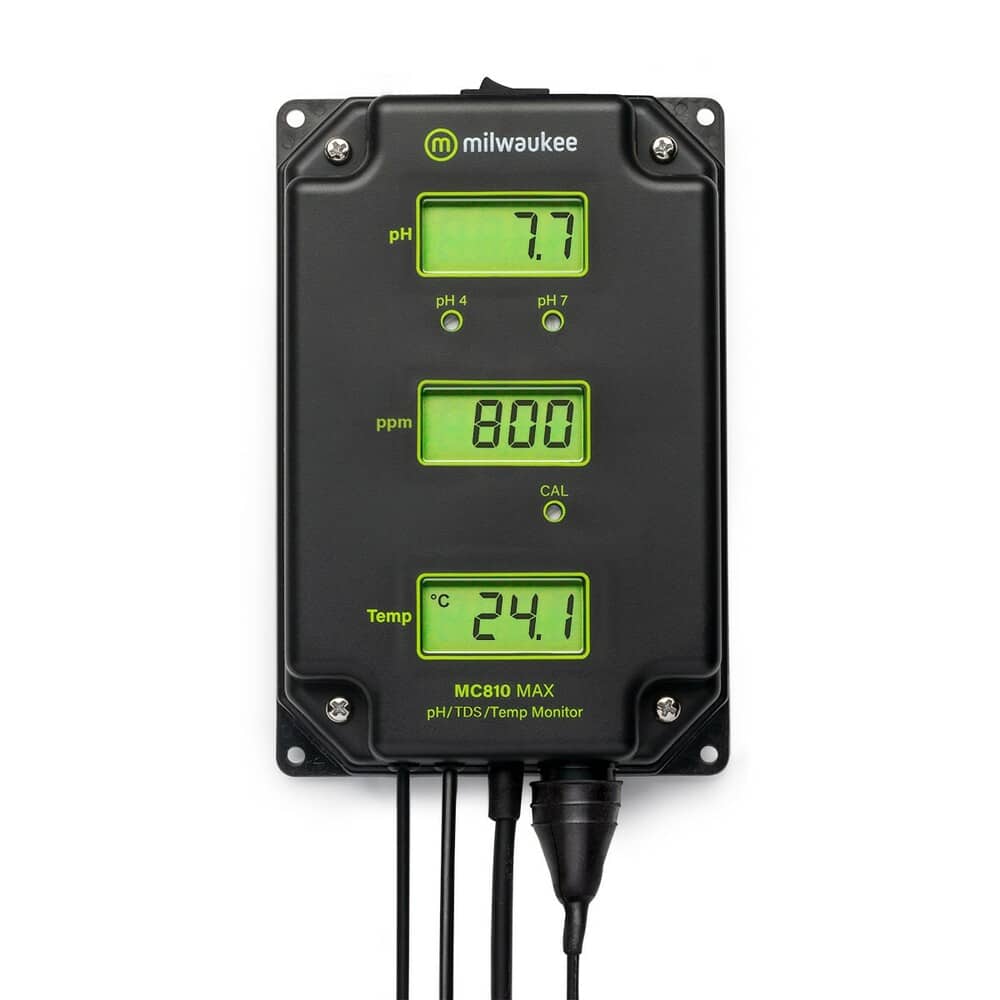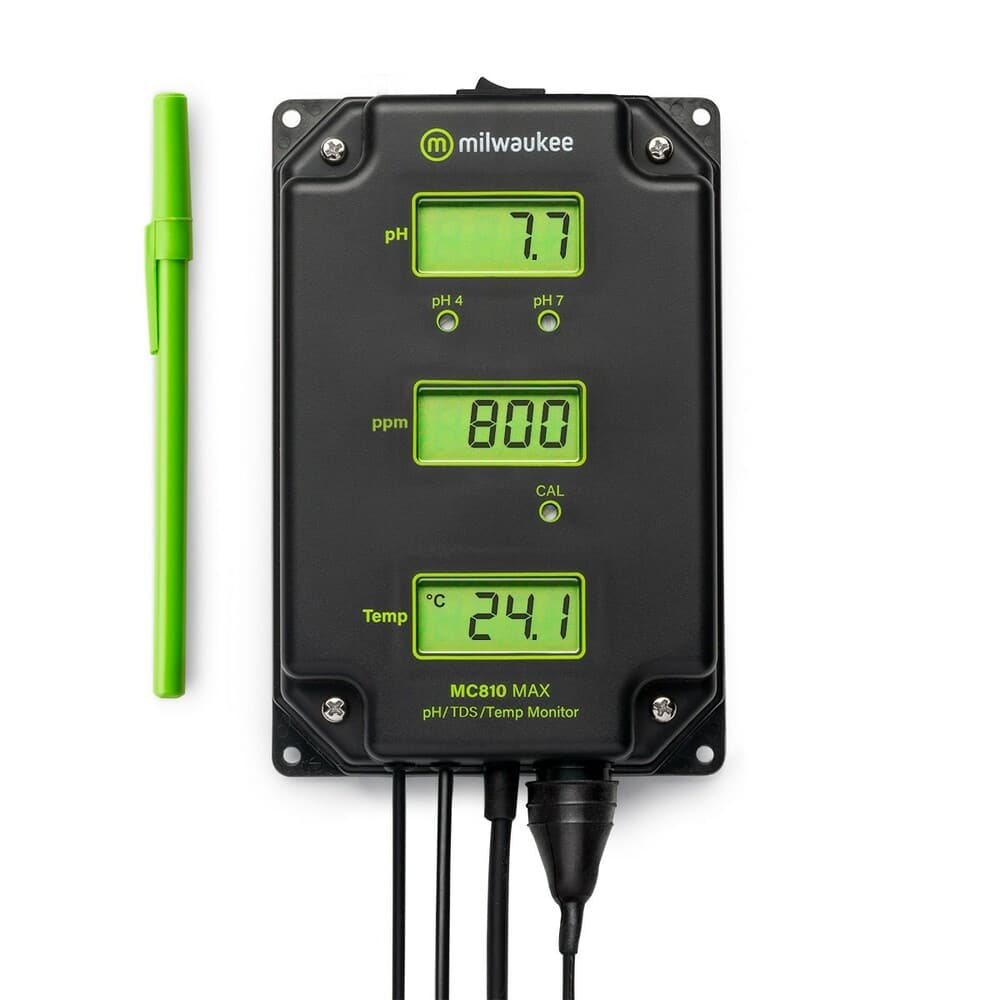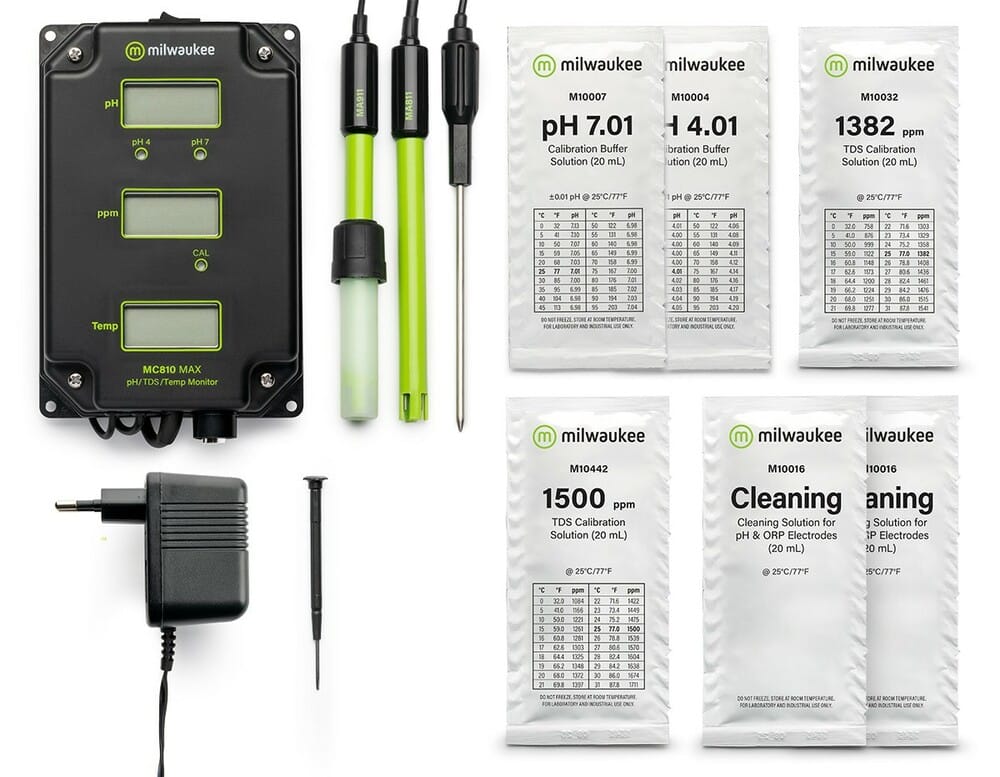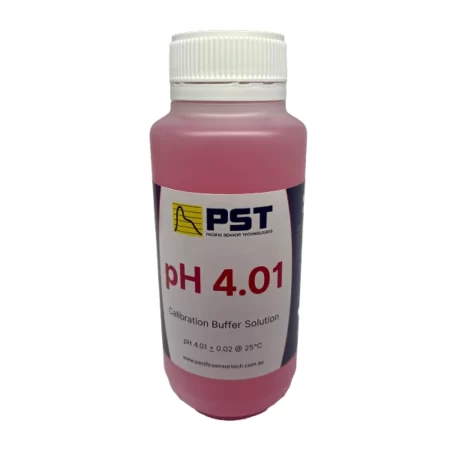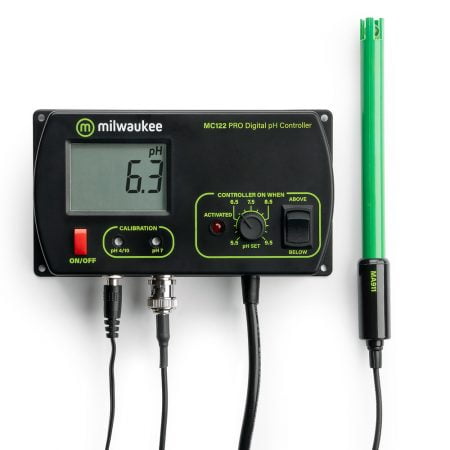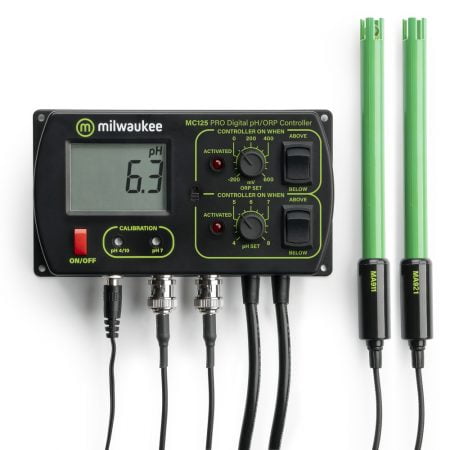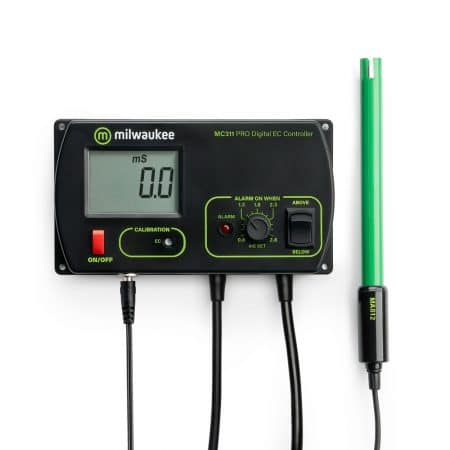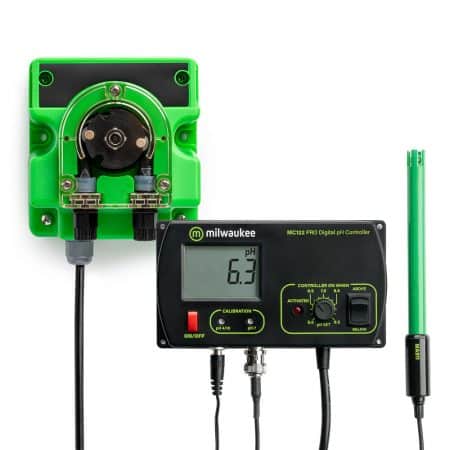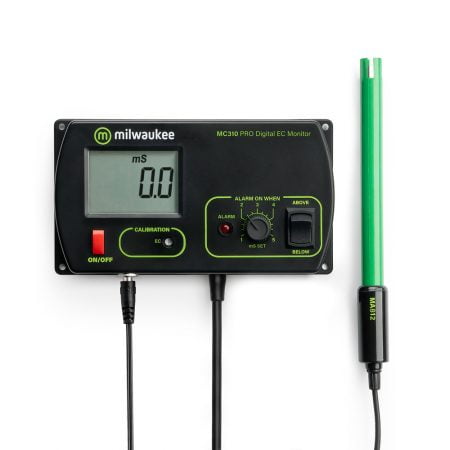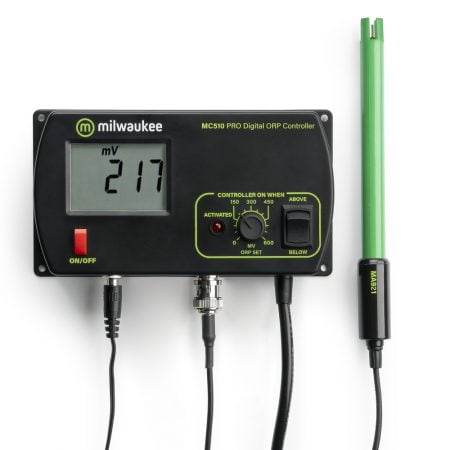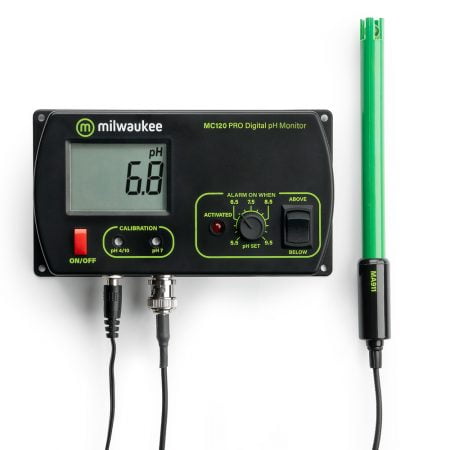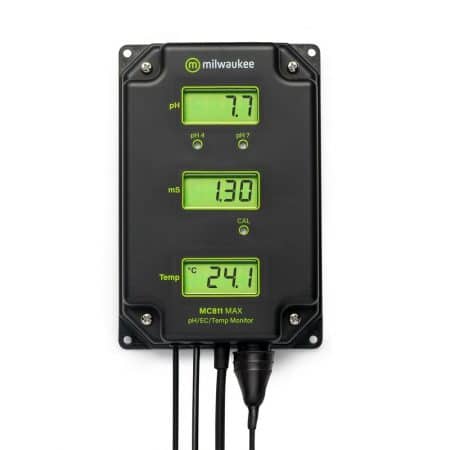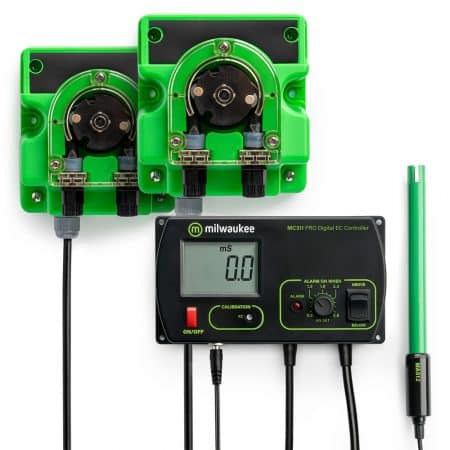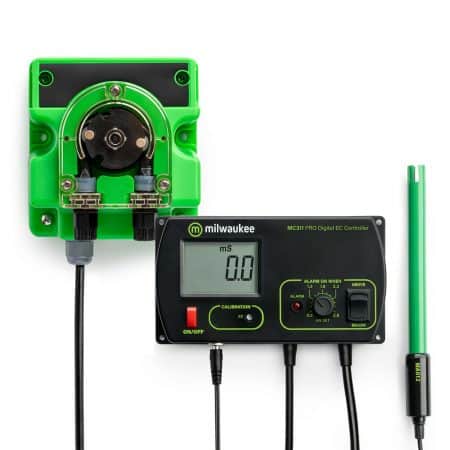ACCURATE. SIMPLE. RELIABLE. 24/7 PH/EC/TEMP MONITORING.
The MC810 MAX Monitor automatically monitors and displays pH/TDS/Temp levels. Just calibrate the parameters and let the Milwaukee MAX Monitor do the rest.
The Milwaukee MC810 MAX pH/TDS/Temp Monitor is preferred by people looking to know 24/7 what their pH and nutrient levels are on an ongoing basis. Common uses are nutrient tanks, Hydroponics and aquariums.
The Milwaukee MAX pH/TDS/Temp Monitor offers:
ACCURACY
The Milwaukee MAX Monitor offers an accuracy to 0.2 pH with two point manual calibration, TDS accuracy of ±2% Full Scale and ±0.5 °F (0.3 °C) temperature accuracy.
AUTOMATION
Just calibrate the parameters and begin to monitor 24/7!
EASY INSTALLATION
The MC810 MAX pH/TDS/Temp Monitor comes with a complete mounting kit including a probe holder.
DESIGN FEATURES
- Fast easy to read current results with 3 large digital BACKLIT LCD readouts.
- Accurate to ±0.2 pH (0.0 pH to 12.0 pH).
- Accurate ±2% Full Scale TDS.
- External Switch atop the unit converts EC Conductivity to TDS (ppm) using 0.5 or 0.7 conversion factor.
- Simple two-point pH calibration and one point TDS, for increased accuracy with manual trimmers for easy adjustment.
- Gel-filled, double junction MA911B/2 (included) lab grade pH electrode for low maintenance and high performance.
- 6.5 feet probe cables for extra flexibility when testing.
- 12 VDC power supply.
USE AND CARE
pH meters usually start performing poorly because of problems with the probe. The two parts of the pH probe that cause problems are the glass sensing bulb and the reference junction.
SENSING BULB
The glass bulb loses sensitivity with use and will eventually fail. This is true of all pH probes.
REFERENCE JUNCTION
The reference junction is a small hole that allows the meter to compare the sample to a reference. The reading is generated based on the electrical difference between the sample and reference. If the junction hole gets clogged, the pH probe will no longer function.
You can extend the life of your pH electrode in the following ways.
STORAGE
The pH probe needs to be kept hydrated. Long periods of dry storage will damage the sensitivity of the probe. Allowing the probe to dry out may also result in the junction hole getting clogged.
Storing in pH probe storage solution or pH calibration buffers will help address both these issues. Do not store in tap water and DI water. This will damage the sensitivity of the probe.
The best way to store the probe is with the probe’s cap filled with storage solution or calibration buffer and the cap tightened to prevent leakage. It is also recommended that to store the electrode upright to further reduce the potential for leakage.
CLEANING
Residue from the sample can impact the sensitivity of the sensing bulb and clog the junction. This is especially true if the sample has a lot of organic material. We recommend regularly soaking your electrode in cleaning solution.
CALIBRATION
The pH sensing bulbs become less sensitive over time so make sure that you are calibrating regularly to keep your PRO pH controller accurate. Also, calibrate after cleaning or a long period of storage.

